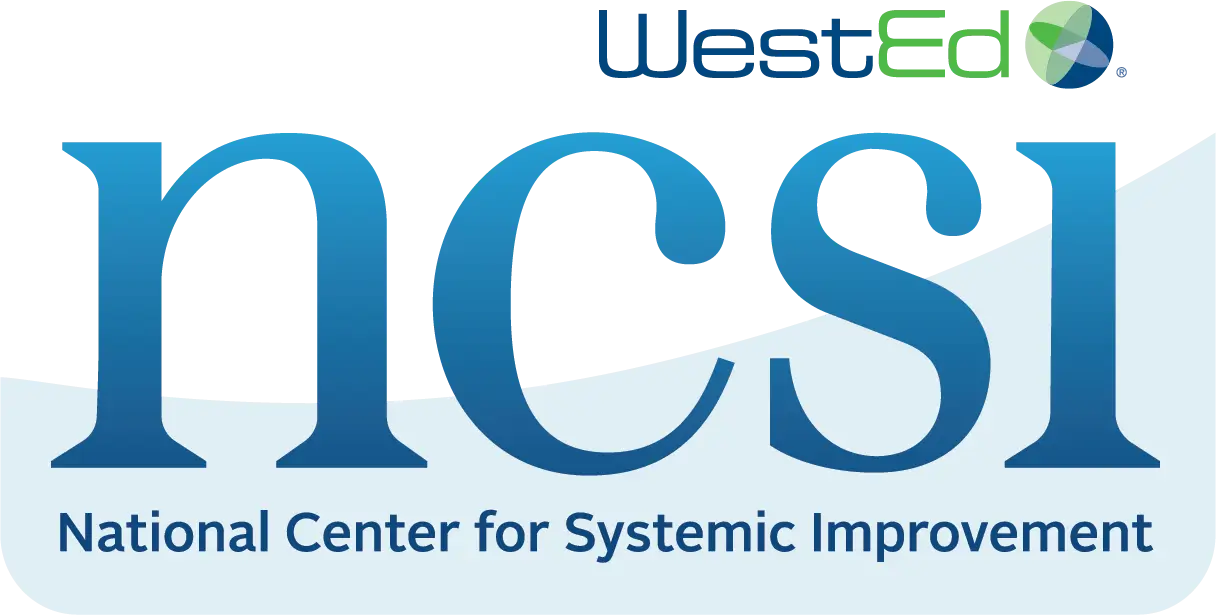A coherent state general supervision system will function in a coordinated and intentional fashion to achieve its ultimate aims—ensuring compliance with the Individuals with Disabilities Education Act (IDEA) and improving student outcomes. The General Supervision System Coherence Self-Assessment Tool supports SEA staff to determine the current levels of coherence within its general supervision system, identify system strengths and opportunities for system improvement, and develop a triage plan to determine which areas the team feels are most pressing or important to achieving its coherence goals.
Book Study in a Box: A Professional Book Study on Coherence: The Right Drivers in Action for Schools, Districts, and Systems
The National Center for Systemic Improvement (NCSI) has created this Facilitator’s Guide and accompanying materials to support state education agencies in undertaking a book study for the book Coherence: The Right Drivers in Action for Schools, Districts, and Systems, written by Michael Fullan and Joanne Quinn (2016, Corwin Press).
A Book Study is a popular method of capacity building in schools, districts, and systems; however, sometimes the thought of planning and developing the materials for a formal Book Study with colleagues can seem like an extra task. But we hope you will find that much of the hard work has been done for you in this Book Study in a Box resource from the NCSI.
This Book Study in a Box resource can be used by staff at the State Education Agency to engage in professional learning at the system level and can be also be shared with leaders of local systems interested in learning about comprehensive improvement models as they learn and lead their way to better school systems and improved student outcomes. This resource includes a Facilitator Guide, a Facilitator Implementation Guide, and a Participant Packet.
Culturally Responsive Data Literacy
The Culturally Responsive Data Literacy document details aspects of data literacy for teaching and culturally responsive teaching, and then merges the two concepts to detail the importance of culturally responsive data literacy. The document further explains what it needed to develop a culturally responsive inquiry orientation to data literacy, which includes academic performance and schooling experiences, personal story and experiences, and examining and interrogating bias.
TA Center Adapted OSEP DMS Protocol – Data and SPP APR
NCSI has created TA Center Adapted Protocols for Data and the SPP APR. The protocols are developed and organized in the following way—
Question: Overarching area and question related to the monitoring component.
General Information: A listing of statements about what the State would need to effectively answer the question.
Possible Follow-up Questions: Questions designed to more closely examine areas addressed by the General Information. The questions included within this section are examples of what may be asked; OSEP may ask additional questions that are not listed to ensure understanding.
Areas (or issues) for Follow-up: Issues which could:
result in findings of noncompliance if verified, or areas of concern that may not rise tothe level of a finding of noncompliance butrequire follow-up;
lead to a finding of noncompliance if the State does not have a process or procedure to meet the Basic Requirement; or
be areas that suggest the need for technical assistance or further discussion.
Additional protocol topics available include:
- Data and SPP APR
- Dispute Resolution: Due Process
- Dispute Resolution: Mediation
- Dispute Resolution: State Complaint
- Integrated Monitoring
- Part B Child Find Protocol
- Part B Subrecipient Monitoring
- Significant Disproportionality
- Sustaining Compliance and Improvement
You can access the OSEP protocols and other OSEP DMS information here.
TA Center Adapted OSEP DMS Protocol – Dispute Resolution: Due Process
NCSI has created TA Center Adapted Protocols for Dispute Resolution: Due Process. The protocols are developed and organized in the following way—
Question: Overarching area and question related to the monitoring component.
General Information: A listing of statements about what the State would need to effectively answer the question.
Possible Follow-up Questions: Questions designed to more closely examine areas addressed by the General Information. The questions included within this section are examples of what may be asked; OSEP may ask additional questions that are not listed to ensure understanding.
Areas (or issues) for Follow-up: Issues which could:
result in findings of noncompliance if verified, or areas of concern that may not rise to the level of a finding of noncompliance but require follow-up; lead to a finding of noncompliance if the State does not have a process or procedure to meet the Basic Requirement; or be areas that suggest the need for technical assistance or further discussion.
Additional protocol topics available include:
- Data and SPP APR
- Dispute Resolution: Due Process
- Dispute Resolution: Mediation
- Dispute Resolution: State Complaint
- Integrated Monitoring
- Part B Child Find Protocol
- Part B Subrecipient Monitoring
- Significant Disproportionality
- Sustaining Compliance and Improvement
You can access the OSEP protocols and other OSEP DMS information here.
TA Center Adapted OSEP DMS Protocol – Dispute Resolution: Mediation
NCSI has created TA Center Adapted Protocols for Dispute Resolution: Mediation. The protocols are developed and organized in the following way—
Question: Overarching area and question related to the monitoring component.
General Information: A listing of statements about what the State would need to effectively answer the question.
Possible Follow-up Questions: Questions designed to more closely examine areas addressed by the General Information. The questions included within this section are examples of what may be asked; OSEP may ask additional questions that are not listed to ensure understanding.
Areas (or issues) for Follow-up: Issues which could:
result in findings of noncompliance if verified, or areas of concern that may not rise to the level of a finding of noncompliance but require follow-up; lead to a finding of noncompliance if the State does not have a process or procedure to meet the Basic Requirement; or be areas that suggest the need for technical assistance or further discussion.
Additional protocol topics available include:
- Data and SPP APR
- Dispute Resolution: Due Process
- Dispute Resolution: Mediation
- Dispute Resolution: State Complaint
- Integrated Monitoring
- Part B Child Find Protocol
- Part B Subrecipient Monitoring
- Significant Disproportionality
- Sustaining Compliance and Improvement
You can access the OSEP protocols and other OSEP DMS information here.

